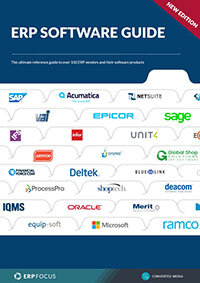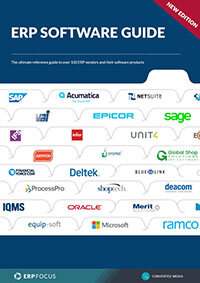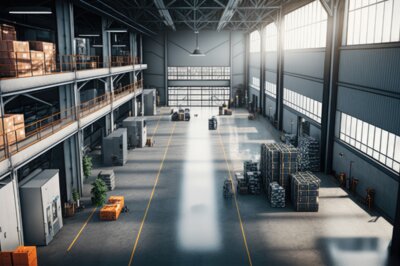Considerations When Selecting the Best ERP for Supply Chain Management
Most will think of the physical flow of materials from their source to their destination when asked what is supply chain management. You place a purchase order and process it into inventory when it arrives. The most basic ERP systems were capable of accomplishing that years ago. Management, though, is more about the flow of information related to the physical flow. Without the information flow, a supply chain lacks its most important component - visibility. What visibility should you look for?
Let’s assume that the demand is solid - you know what material is required and when. You have a choice between two suppliers for that material. The demand is in five weeks. One supplier quotes three weeks delivery and the other quotes seven weeks. Choice made? Not so fast. Supply chain management might let you know that the second supplier has consistently delivered is 2 – 3 weeks despite their conservative quote and their quality is better. You have collected valuable ERP metrics and data in your ERP and can use it to make the best supply chain decision.
Another component of supply chain management is integration with third-party systems. Your supplier provides you with the shipment date and complete tracking information. You can link to the carrier’s system and watch it hour-by-hour as it moves to your facility if that level of attention is needed.
Your demand might change. You placed an order for a plant at one address but now have decided it is better at a different address. Do you wait and ship it yourself losing a day or two with the second shipment? Supply chain management will help you know if it has not shipped and simply change the ship-to address or link to the carrier and ask them to deliver differently.
Supply chain management is aided by other kinds of visibility. Link to your supplier’s ERP through an extranet. Before you place an order, you can see their capacity to take the order. After placing the order, watch the flow of production and the incoming components needed for your material. You can address problems much earlier and perhaps have the ability to recover from a problem.
Supply chain management might offer other capabilities you can use:
Warehouse Management - the ability to manage the placement of material within a warehouse for best execution of movement to where it is needed.
Transportation Management - the ability to control movement of materials between your facilities or to your customers’ facilities.
Your Management - the ability to know where every trailer or container outside you warehouse is and move the optimal one to the right dock door exactly as needed.
Your lean goal is to have exactly the right material where and when needed and no extra, plus to do it all at the lowest total cost. ERP and supply chain management will help many businesses achieve that end.
Free white paper

ERP Software Guide
A 70 page guide covering over 100 different software products

Related articles
-

How to use ERP workflow to improve supply chain management
Learn how automated ERP workflows can improve order management, production scheduling and more su...
-

Secret KPI: Why Your ERP Implementation Team Matters More Than Software
Learn how Godlan ensures successful ERP implementation for manufacturers with proven strategies &...
-

ERP & Logistics: Optimizing the Supply Chain
Read about the steps you can take to optimize your supply chain through ERP software logistics ma...

